Experienced Surgical Neurophysiologist Are In Demand – If You Can Prove Your Value.
At the time of this writing, most neuromonitoring companies feel that there is a shortage of experienced surgical neurophysiologist in the applicant pools.
Or at least seasoned ones.
By seasoned I mean experienced surgical neurophysiologist that regularly works a variety of case types to the point where they are completely confident and understands it at a high level. Those type of clinicians often finds themselves in roles that do more than just monitor cases for the company.
And since a seasoned, experienced surgical neurophysiologist is hard to find in the first place, it is even harder matching them up with a neuromonitoring job opening at a certain location in the country.
And that is where the difficulty starts. But it doesn’t end there.
The other difficulty is in the process itself. Talk to anyone that’s been on the hiring side for a while and they can rattle off a couple of names that they feel they overpaid. That’s because the interview process for experienced surgical neurophysiologist is terrible. It usually involves a phone call for an hour that mainly goes over generic interview questions (I already gave you a list of these questions to prepare for your interview for a neuromonitoring job) that have very little to do with demonstrating how someone performs in the operating room.
So out of necessity, hiring managers are forced to really look at not just what is being said during the interview process, but how is it being said, does it match your need and can it be worth more than face value. Sometimes these judgments hold a lot of weight but are made of off limited information. For the unprepared, this can be a killer. But for the prepared, it is an easy way to get your interviewer chomping at the bit.
Here are 7 assessment made during the interview process of an experienced surgical neurophysiologist that falls “under the radar”
SURPRISE: The first 3 have nothing to do with your ability to monitor a case.
Communication
First and foremost, the ability to communicate under stressful situations is always high on the priority list and it is absolutely expected from an experienced surgical neurophysiologist. I’ve talked to some very smart people that have a profound understanding of neurophysiology but have difficulty relaying that information to another person.
I’ve seen two major reasons for this.
First is when English is a second language. If you talk to managers of a neuromonitoring group, surgeon complaints about language is a reoccurring problem. It typically sounds like this:

“XYZ seems like a nice person, but I just can’t understand them. The other day something happened and I couldn’t make out what they were trying to tell me. I had to have ABC repeatedly tell me what they were saying. I just can’t have that in my room. I’m sorry, but please don’t put XYZ with me anymore.”
Then when the manager has a talk with the person, they did everything right, except deliver their message clear enough for the surgeon to understand and use in their medical plan.
If you think you fall into this category, I really encourage you to work on the accent. I’ve had that conversation face-to-face with people in the past. It’s not the easiest one to have but is really is in their best interest to hear that feedback so they can try to do something about it. Spanish is the only other language that I have studied, and I can empathize with those that have a hard time nailing a foreign accent. Neuromonitoring professionals spend a decent amount of time driving in our cars. That’s a perfect time to listen to speech programs on a CD and practice. That’s how I would do it at least.
The other group is the under-practiced. Put a matching test in front of them and they’ll do well. Have a neuromonitoring conversation with them, and they’ll have difficulty giving any explanations that span greater than a couple of words.
On an interview, as well as in the operating room when things go wrong, you need to be able to have a well thought out conversation about neuromonitoring. The fluidity of speech and confidence in the content demonstrates you as a seasoned experienced hire.
I think that regular job interviews are poor in helping select a candidate for a neuromonitoring position. It tells you next to nothing about how the person performs in the operating room. The one thing that the job interview does allow you to find out is how the person performs under stress. If they are choking on their words here, they most likely will be doing the same in the operating room when things start to go wrong.
I understand that people might not like talking about themselves, and fumbling through a question like “what are your 3 strongest attributes” does not mean the same thing as fumbling through a question like “tell me why you use 4.13 as your rep rate for lower extremity somatosensory evoked potentials?” But that’s all we might have to go off of.
You need to be able to talk about your craft at a high level and be able to effectively communicate under harsh circumstances. Just like in the operating room, most people can prepare enough for an interview that this should not be a problem.
Personality
I once asked a neuromonitoring HR representative what she looks for in a SNP applicant with no experience. She said that it breaks down to about 40% background, 30% job experience, and 30% personality. Those percentages moved to 20% background, 40% job experience and 40% personality for experienced surgical neurophysiologist.
That’s how important personality is for this job.
The problem is the applicant doesn’t know what personality the interviewer is looking for (although I bet we can all guess what they aren’t looking for).
- In some instances, the interviewer is looking for someone that has a very large personality that can’t help but make friends wherever they go. They might be going to work with a surgeon that places a priority on liking the people in their OR.
- Other times they’re looking for the personality that is more business-like or someone that likes to have high-end discussions on neuromonitoring as it relates to surgeries. This job opening is looking for someone that can work with a surgeon that puts a priority on professionalism.
- Another job opening might be for someone with a personality that brings people together. This position might be looking for a centerpiece to a local team that doesn’t have the strongest working relationships.
Going into the job interview, this information most likely isn’t given to you. While there are things you can do to earn points towards different desirable traits, you’ll never get them all. Just go into it being the best version of yourself with the intention of keeping it up should you get the job. If you didn’t get it because they wanted a different personality type, then it probably wasn’t the position you were going to do your best at anyways.
Next!
Relationships
This is where things can get a little ugly. We all know that after providing a good product for an extended period of time, there is a relationship built between the clinician/company and the surgeon. While the clinician is there as an extension of the company, that personal relationship can sometimes surpass the relationship the surgeon has with the company. This makes for great job security for the clinician.
Other companies might see this built relationship as an asset worth pursuing. Job offers might be made with the hopes of not just gaining a competent employee, but taking the surgeon along with them.
Should the clinician decide to take the new offer, they might find themselves in a legal and ethical predicament.
Depending on what your contract with your previous employer states, you may not be able to legally work with that surgeon, that hospital/surgical center or even in a territory that surrounds that area for a period of time. Depending on your own personal situation, you might have a moral dilemma on your hands, seeing as taking business from your old company to a new one puts your other co-worker’s jobs in jeopardy.
So there are some legal and personal issues to work through.
That being said, it’s more about finding someone that can build relationships with surgeons and the OR staff. Clinicians that have been booted out of rooms makes for scheduling difficulties that can bring down an entire area. Employers do place a premium on likable people. Remember that throughout your interview process. Every person in the company you speak with at that company can be your advocate or adversary.
(Side note: whenever you decide to take a job, especially in the neuromonitoring world, you should probably have an attorney look over your contract. You want to know what you’re getting into and if there is something worth negotiating for the new job offer. Just as important, you’ll want to know how to avoid costly mistakes leaving your current employer. I have used this attorney in Florida to go over my neuromonitoring non-compete and non-disclosure clauses in my contracts twice now [the interview with him is on Day#16]. I wanted to make sure that I was fully aware of my options, obligations and how things would likely turn out for every situation. After his legal counsel and sticking by my own moral code, I personally decided to not push the envelope and do anything to be in breach of those contracts. It was never my intention of not keeping up with my end of the contract, but I needed to make sure I didn’t overlook anything.)
Transferable Experience
When someone turns in a resume with multiple years of experience, everyone on the hiring side perks up a bit. It cost a company a lot of time and money to train someone. In order to save money on extra training and possibly expand services offered in a local area, an experienced surgical neurophysiologist can often fit an immediate need.
But I’ve been fooled enough to no longer look at a number of years as the best marker of experience. Not every candidate has the same experiences in that time. I’ve seen some accomplish more in 3 years than others in 10 years.
This includes the variety of cases performed, variety of cases performed with a high understanding and comfort level, roles taken within the company, accomplishments made in the field, marketing, business development, research, lectures, etc.
I’m more interested in someone that did 5 acoustic neuroma cases last year than the person that never saw one, but not as much as the person that just did one last week and will do about 40 of them this year. Oh… you also lead a company-wide training program for that case type? You just moved up to the head of the “see one, do one, teach one” food chain.
And what’s that… you also led a company-wide training program for that case type? You just moved up to the head of the “see one, do one, teach one” food chain.
Who are the people that do all these different cases on a regular basis and lead the company in neuromonitoring training? They are the ones that ask for it and prove they are dedicated to learning it.
Industry connections
The first connections the interviewer finds out about is the references. But everyone has at least a couple people they could put as a reference that will sing their praises.
In my experience, it can be a waste of time if you’re talking to the references just to see if they think the applicant will make a good hire. But it’s not a waste of time calling them.
I will always call and have a chat with them. I want to see what kind of company they keep. I might go so far as to start to interview the reference a little bit as well. If they are listed as their trainer and/or mentor and can’t handle some of the basics, then that might not bode well for the applicant. If they are a coworker, I’ll ask leading questions like “what role did XYZ play at your company” and go from there.
If you knew IONM hiring managers were judging you on the qualifications of your reference instead of just listening to the cheerleader in your corner, would you choose the same references? If you said yes, that means your biggest cheerleader is also an impressive clinician and you’re on the right track.
But that’s not the only connections I’m looking for. I’m going to dig a little deeper and see if we know any people in common. If so, I’ll reach out to them for another opinion.
Or the applicant might have some testimonials on LinkedIn.
Or people thanking them for their help or input on forums.
Or they might have worked with someone I don’t know, but have a great reputation within the industry. If they worked directly with someone that knows their stuff, I start to make some assumptions in their favor.
Is that completely fair? Probably not. But remember hiring managers are going off of limited information here to make a long term commitment. We’re trying to add as much to our pro and con columns as possible. So do yourself a favor and make sure all of this is something findable. Get out there network. Be helpful, be influential and run with a good crew.
Personal branding
This one I have to admit I had no idea was valuable till I started working on the contract negotiation side of the industry.
When I got my DABNM, I felt like it helped my credibility to those in the field. What I didn’t realize is that it is one additional bargaining chip for the company to use in their negotiations. It ended up that having a DABNM local was a big deal for the hospital.
And so was the fact that all the clinicians were CNIM or taking the board in a couple of months with the necessity to pass.
And so was the fact that we had physicians, Ph.D., and masters in neuroscience.
And so on.
I was completely oblivious to the fact that these credentials mean more to a company than finding highly educated candidates that usually makes for great clinicians, but also as bargaining chips for gaining new business and retaining contracts.
Armed with this information, wouldn’t it make sense for you to build your personal brand within the industry? This should really resonate with those people with tons of experience without the CNIM or for those doctors trying to figure out if getting their DABNM is worth it for them.
Build your own personal brand is building your company’s brand, and that’s valuable.
Intangibles
I’ve worked for small, medium and large neuromonitoring companies over the years. The smaller the company, the more hats you might have to wear, the different situations you might find yourself in and the more important intangibles might be valued.
Yes, some of the other categories on this list are intangibles. But there are others that may not be as important, but stand out none the less.
These invisible, often hard to accurately measure and value, assets might be the difference between you and the other candidates.
There’s a formula that some try to follow to let their expertise be known by all that hardly ever works. Here it is:
Bragging + Chest pounding + Ego + Pointing out other’s flaws = Seasoned, Experienced Surgical Neurophysiologist
When the applicant says they are “hardworking and a great team member” then they are just bragging. The thing you really need to understand is that the interviewer is looking to discover these things themselves. You need to frame your answers that prove you’re hardworking and a great team player.
Let the interviewer come to that conclusion. If they figured it out for themselves, then it’s true.
And after the interviewer is done patting themselves on the back for being so good at interviewing, they’re going to tell all the other people in the hiring process what they’ve discovered. And at that point, it’s become matter-of-fact because someone else is saying it about you.
So it is the answers that you give that portray you in that light, it’s the way you conduct yourself throughout the entire interview process, it’s the proof that you can provide that gives you ownership of these intangibles in the interviewer’s eyes.
Here’s a quick example:
I interviewed a candidate that had very little experience but had already earned some additional responsibility at her current company (BTW – additional responsibility usually comes just by asking for it). During the interview process, she didn’t have great responses to some of the questions. But she did ask additional follow-up questions and took notes because she didn’t want to miss an excellent learning opportunity. Her follow-up interview thanked us for the opportunity and explaining the questions she missed, and how it just reiterated why she wanted to work with us. She did the same for all the other people in the interview process, and we all came to our own conclusion that “although she needs some work on XYZ, that is a short-sighted problem because she really has [insert list of intangibles], which is probably why her last company [insert additional responsibilities]. We were all so proud of ourselves for figuring this out, but the truth of the matter is she was prepared to get that IONM job.
The Interview Is Just As Much About The Process As It Is The Interview
It’s important to realize that the current interviewing process for experienced surgical neurophysiologist stinks for the hiring manager. There is very little to try to make a decision that forces them to overemphasize little things that shouldn’t carry as much weight or assume one action or comment can be interpreted to mean something much greater. Just knowing the rules of the games makes you a better player, and more likely to get the job you deserve.
Want new articles before they get published?
Subscribe to our Awesome Newsletter.
2 Comments
Keep Learning
Here are some related guides and posts that you might enjoy next.
How To Have Deep Dive Neuromonitoring Conversations That Pays Off…
How To Have A Neuromonitoring Discussion One of the reasons for starting this website was to make sure I was part of the neuromonitoring conversation. It was a decision I made early in my career... and I'm glad I did. Hearing the different perspectives and experiences...
Intraoperative EMG: Referential or Bipolar?
Recording Electrodes For EMG in the Operating Room: Referential or Bipolar? If your IONM manager walked into the OR in the middle of your case, took a look at your intraoperative EMG traces and started questioning your setup, could you defend yourself? I try to do...
BAER During MVD Surgery: A New Protocol?
BAER (Brainstem Auditory Evoked Potentials) During Microvascular Decompression Surgery You might remember when I was complaining about using ABR in the operating room and how to adjust the click polarity to help obtain a more reliable BAER. But my first gripe, having...
Bye-Bye Neuromonitoring Forum
Goodbye To The Neuromonitoring Forum One area of the website that I thought had the most potential to be an asset for the IONM community was the neuromonitoring forum. But it has been several months now and it is still a complete ghost town. I'm honestly not too...
EMG Nerve Monitoring During Minimally Invasive Fusion of the Sacroiliac Joint
Minimally Invasive Fusion of the Sacroiliac Joint Using EMG Nerve Monitoring EMG nerve monitoring in lumbar surgery makes up a large percentage of cases monitored every year. Using EMG nerve monitoring during SI joint fusions seems to be less utilized, even though the...
Physical Exam Scope Of Practice For The Surgical Neurophysiologist
SNP's Performing A Physical Exam: Who Should Do It And Who Shouldn't... Before any case is monitored, all pertinent patient history, signs, symptoms, physical exam findings and diagnostics should be gathered, documented and relayed to any oversight physician that may...
Help Spread The Word. Social Media Works!

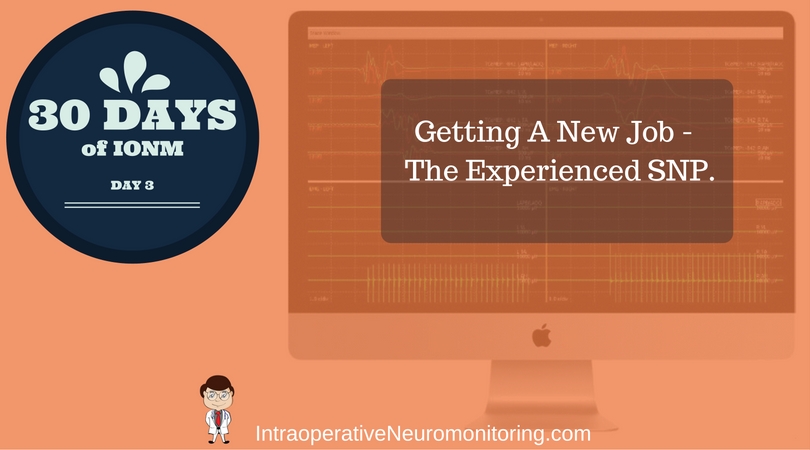

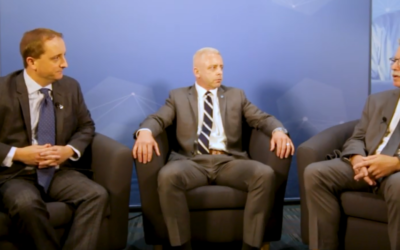
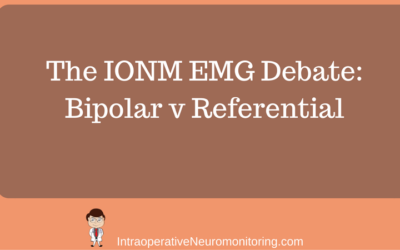
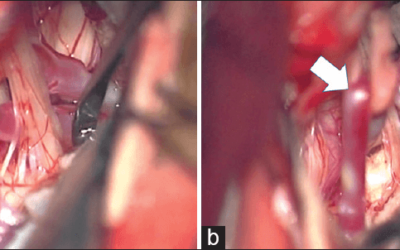
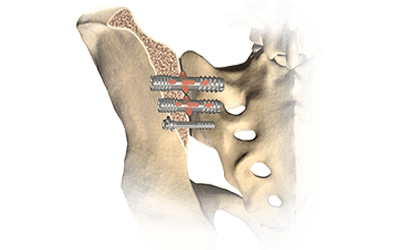
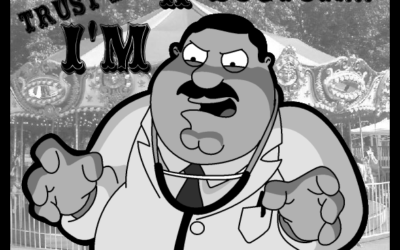

Good article Joe.
For trained people, other biggest mistake is overstating your experience/expertise on a case/modality. You look bad when say are expert in MVDs but then can’t compare and contrast the ideal IONM plan if dx is trigeminal neuralgia versus hemifacial spasm or reference any literature.
I tried to see results for survey, but it wouldn’t pop up. I chose #3
Thanks for the heads up on the poll. I’ve looked it over and have no idea why it is acting that way. As of now, #3 is in a large lead.